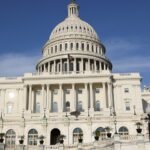Emerging Variants: What the Latest COVID Strains Mean for Public Health
As the global community continues to navigate the complexities of the COVID-19 pandemic, the emergence of new viral variants remains a pivotal focal point for public health officials. The continuous evolution of the SARS-CoV-2 virus has led to the identification of multiple variants, some of which exhibit increased transmissibility, altered disease severity, and, in some cases, resistance to vaccine-induced immunity. Understanding these variants is vital in shaping public health strategies, vaccine development, and the overall response to the pandemic.
The Evolution of SARS-CoV-2
Viruses evolve over time, and SARS-CoV-2 is no exception. Genetic mutations occur during replication, leading to the emergence of different strains. The World Health Organization (WHO) categorizes variants based on their potential impact on public health: Variants of Interest (VOI), Variants of Concern (VOC), and Variants of High Consequence (VOHC). The majority of the current focus is on VOCs, which have shown evidence of increased transmission rates, changes in disease severity, or decreased effectiveness of treatments and vaccines.
Variants like Alpha, Beta, Delta, and Omicron have significantly shaped the trajectory of the pandemic. Omicron, in particular, raised alarms due to its high number of mutations and rapid spread, becoming the dominant strain in many countries. As further subvariants of Omicron continue to emerge, public health responses need to adapt and evolve accordingly.
The Impact of Emerging Variants on Public Health Strategies
-
Vaccination Efforts: The emergence of new variants poses challenges to existing vaccination campaigns. While vaccines remain effective at reducing severe disease and hospitalization, some variants have shown the ability to partially evade immune responses generated by previous infections or vaccinations. This reality underscores the importance of booster doses tailored to specific variants, as well as the need for ongoing research into universal vaccines that can offer broader protection.
-
Public Health Guidelines: The rise of new variants necessitates a reassessment of public health guidelines. Mask mandates, social distancing measures, and travel restrictions may need to be reinstated or adjusted based on the transmissibility and severity of the prevailing variants. For instance, areas experiencing surges associated with a new variant might implement stricter measures to protect vulnerable populations.
-
Surveillance and Research: Continuous genomic surveillance is essential in tracking the spread and evolution of COVID-19 variants. Public health organizations must invest in surveillance systems capable of quickly identifying new variants and assessing their impact on transmission dynamics and vaccine efficacy. This data is critical for formulating timely public health responses.
- Global Cooperation: The pandemic is a global challenge that transcends national borders. Coordinated efforts in sequencing viral genomes across countries, sharing data on emerging variants, and facilitating equitable vaccine distribution are vital. Variants do not respect borders; hence the global community must work together to understand and counteract their spread, particularly in low-income regions where vaccination rates remain low.
Preparing for Future Variants
As we move forward, it is clear that new COVID-19 variants will continue to emerge. This reality reinforces the need for adaptable public health strategies that can pivot in response to changing circumstances. Future preparedness may involve:
- Developing next-generation vaccines that target a broader range of viral variants and enhance antibody durability.
- Establishing infrastructure for rapid response to outbreaks associated with new variants, including mass testing and contact tracing.
- Focusing on equity in vaccination efforts to reduce the spread of the virus globally, which is essential to preventing the emergence of future variants.
Conclusion
The emergence of COVID-19 variants is a reminder of the virus’s ability to adapt and challenge public health efforts. Continued vigilance, robust surveillance, and global cooperation are essential to mitigating the effects of these variants on populations. Through comprehensive strategies that combine vaccination, research, and public health measures, the path forward can be navigated more effectively. As we have learned throughout this pandemic, adaptability, resilience, and collaboration are crucial in our collective fight against COVID-19 and its evolving variants.



![Fan Theories Unveiled: What’s Next for [Show Title]? Fan Theories Unveiled: What’s Next for [Show Title]?](https://globalnewsweek.icu/wp-content/uploads/2024/10/pianist-8963455_960_720-150x150.jpg)
